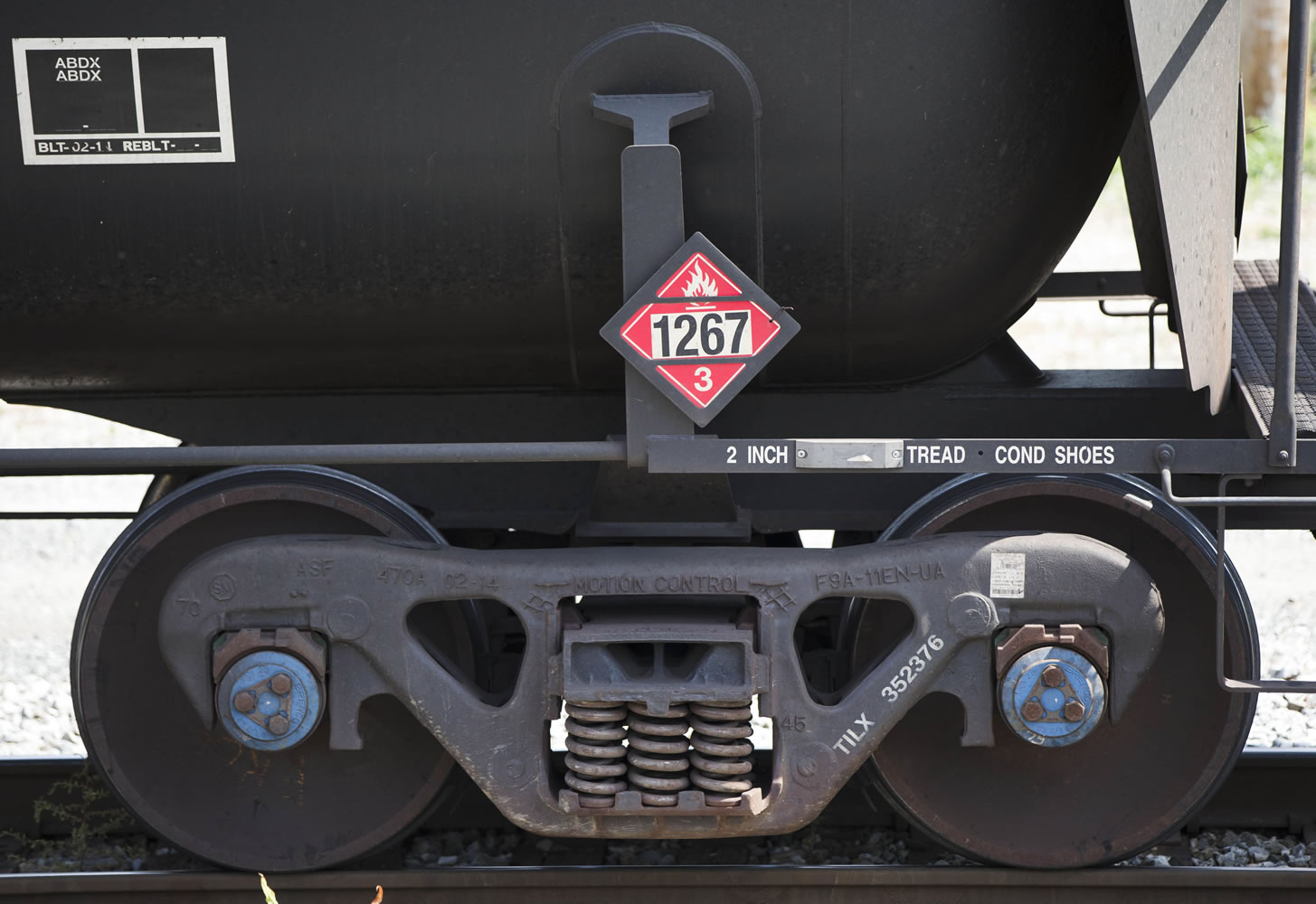Mile-long trains carrying millions of gallons of crude have become a common sight in cities around the U.S., raising concern about the possibility of a catastrophic derailment near crowded neighborhoods or critical infrastructure.
In the wake of a half-dozen fiery crashes this year, The Associated Press surveyed nearly a dozen cities with populations of more than 250,000 to gauge how prepared they are to respond to an oil-train derailment.
Emergency officials in every city say they’re aware of the threat and are taking steps to address it, but the level of preparedness differs from city to city.
BUFFALO, NEW YORK
• City does not have an emergency plan that specifically addresses oil trains, but says it’s developing one.
• City participated in tabletop exercise in 2015 sponsored by CSX and involving several agencies and contractors.
• Railroad paid for tank car simulator and kits for capping leaks on pressurized railcars.
• City discussed potential dangers with railroad.
CHICAGO
• Has oil-train emergency plan.
• Variety of tabletop exercises and training exercises have taken place in and around Chicago involving railroads, first responders and government officials.
• City recently developed pilot training program for first responders.
• Fire department has sent about 25 members to train in Colorado so far this year, paid for by railroad.
• Mayor Rahm Emanuel proposed national hazardous materials freight fee on oil producers and industrial oil consumers to generate money for rail infrastructure and safety improvements.
CLEVELAND
• Has oil-train emergency plan.
• City took part in tabletop exercise involving derailment and hazmat release, but it wasn’t specific to crude.
• Planning underway for regional derailment tabletop exercise for 2016.
MILWAUKEE
• City does not have a specific oil-train emergency plan, but its comprehensive plan includes procedures for containment and vapor suppression. City plans to draft a Milwaukee County Rail Response Plan.
• Fire department provided basic training on crude shipments and accidents to more than 800 members.
• Hazmat team has trained with specialists from railroads; members have also received training in Colorado.
• City has met numerous times with railroads.
• Railroads have paid for training, equipment, including foam trailer.
MINNEAPOLIS
• No oil-train emergency plan; city relies on “major hazardous materials event” response plan.
• City has conducted live training for rail incidents and sent hazmat team members to Colorado for oil response training.
• Sen. Al Franken wants trains rerouted around Twin Cities.
• Rail industry has paid for “awareness level training” for firefighters.
SEATTLE
• Emergency plan has sections related to oil and hazardous materials.
• City took part in King County’s tabletop exercises in 2014 and 2015. City working with railroad to set up a Seattle-specific exercise later this year.
• Fire officials, Burlington Northern Santa Fe railroad met to discuss train tunnel under downtown; City Council asked railroad to restrict oil shipments along stadiums and through tunnel.
• Railroad has paid for training, equipment.
NEWARK, N.J.
• City has emergency response plan specifically for oil-train accidents.
• Fire department’s special operations and hazardous materials units took part in training scenarios based on response plan.
• Railroad hasn’t paid for training.
NEW ORLEANS
• Emergency plan includes city-owned New Orleans Public Belt Railroad, a major rail line through city that connects with six private railroads.
• Railroad has self-imposed speed limit of 10 mph to reduce likelihood, severity of derailments.
• New Orleans Public Belt railroad provided tank car to fire department training academy.
• Fire department has sent 12 members to train in Colorado, include six in 2015; railroads foot bill.
PHILADELPHIA
• City has oil-train annex to hazardous materials emergency plan.
• City held “functional exercise” with CSX railroad in October 2014.
• Office of Emergency Management conducted internal training on crude oil emergencies that included mass notification and evacuation, activation of emergency shelters, overall emergency response coordination and recovery.
• CSX has provided training to fire department. City intends more planning and training.
PITTSBURGH
• No oil-train emergency plan, but city is adding section to existing emergency operations plan.
• City plans to both meet with railroads and to introduce training exercises once emergency response guidelines are finished.
• Hazardous materials team has attended railroad-sponsored tank car training.
SACRAMENTO, CALIF.
• No oil-train emergency plan, but city says 2008 hazmat response plan is undergoing revisions.
• City did tabletop exercise on June 4 with 70 participants from local, state agencies and railroads.
• City meets about once a month with railroads.
• Railroads paid to send four fire department employees to Colorado for crude-by-rail training.
• City had been seeing as many as nine oil trains a week last year, but more recently there have been few, if any, trains passing through.




